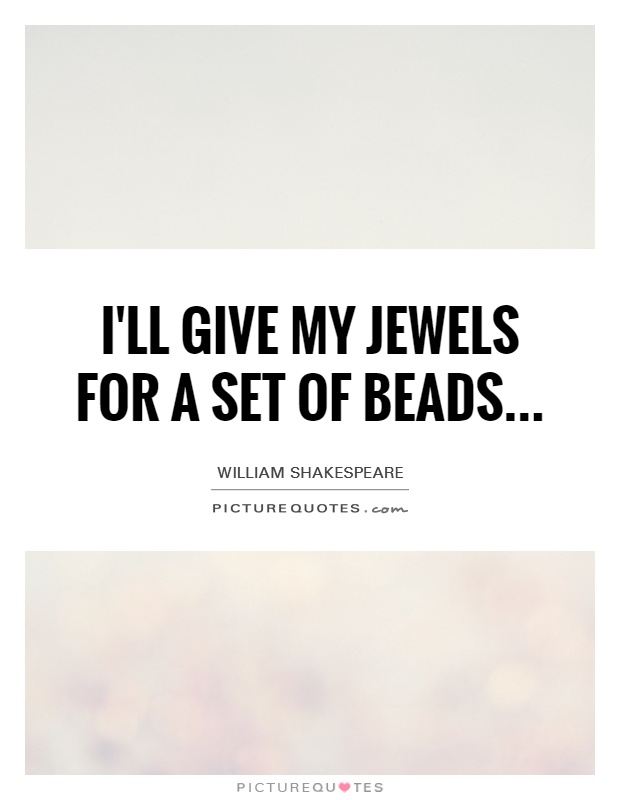I'll give my jewels for a set of beads

I'll give my jewels for a set of beads
In William Shakespeare's play, "The Merchant of Venice," the character Portia utters the famous line, "I'll give my jewels for a set of beads." This line is spoken during a pivotal moment in the play when Portia, disguised as a male lawyer, is trying to save her husband's friend, Antonio, from the cruel and vengeful Shylock.The context of this line is important to understanding its significance. Portia is a wealthy and intelligent woman who is forced to disguise herself as a man in order to save Antonio. She is willing to sacrifice her own wealth and possessions in order to help a friend in need. This selfless act demonstrates Portia's loyalty and compassion, as well as her willingness to go to great lengths to help those she cares about.
The line "I'll give my jewels for a set of beads" can be interpreted in a number of ways. On one level, it can be seen as a metaphor for the idea that material possessions are ultimately meaningless in the face of true friendship and love. Portia is willing to give up her jewels, which are symbols of her wealth and status, in exchange for something as simple and humble as a set of beads. This demonstrates her belief that true value lies in relationships and connections with others, rather than in material wealth.
On another level, the line can be seen as a commentary on the nature of sacrifice and the lengths to which people will go to help those they care about. Portia's willingness to give up her jewels for a set of beads shows her willingness to make personal sacrifices in order to help others. This selflessness is a central theme in "The Merchant of Venice," as characters are forced to confront their own values and priorities in the face of difficult choices.
Overall, the line "I'll give my jewels for a set of beads" is a powerful and poignant moment in "The Merchant of Venice." It highlights the themes of sacrifice, loyalty, and the true value of relationships, and serves as a reminder that true wealth lies not in material possessions, but in the connections we make with others.












 Friendship Quotes
Friendship Quotes Love Quotes
Love Quotes Life Quotes
Life Quotes Funny Quotes
Funny Quotes Motivational Quotes
Motivational Quotes Inspirational Quotes
Inspirational Quotes